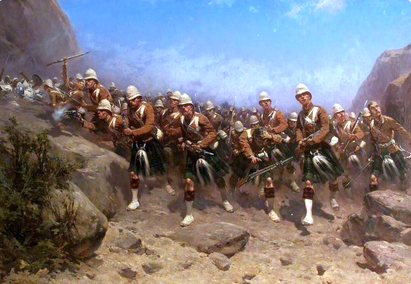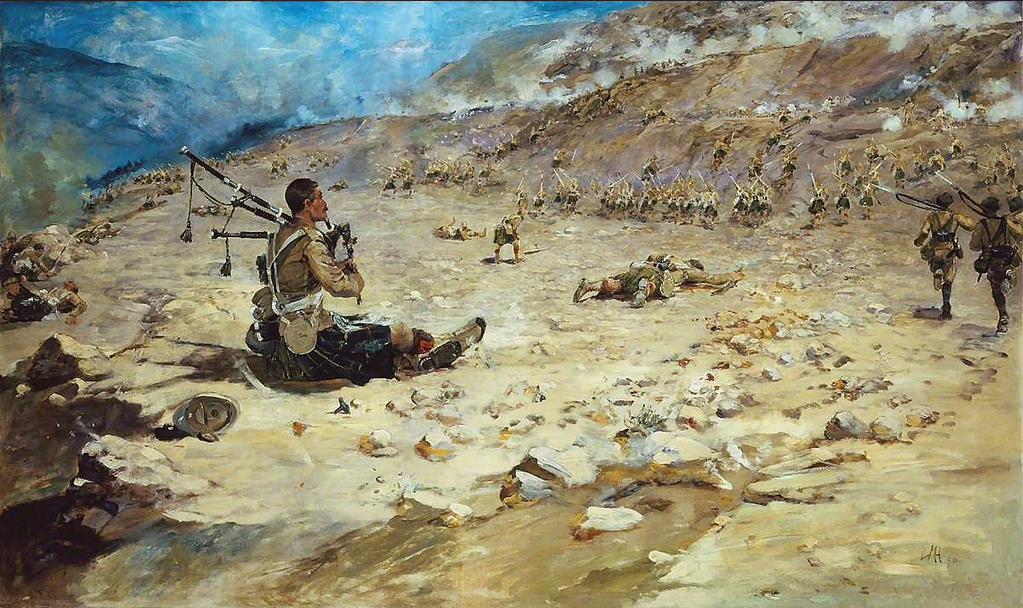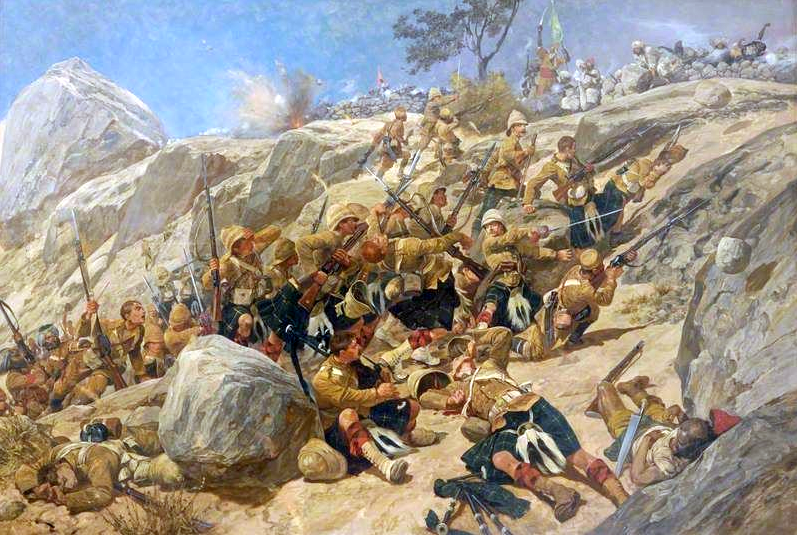The Heights of Dargai
From Edmund L. Hill, 1913, “Poems”
The Gordon Highlanders will take the crest,
Our Colonel cried, and an answering cheer
Swept from rank to rank as we lay at rest,
And the Colonel smiled to hear.
Then up we charged at the steep hillside,
And never a heart but beat with pride,
Though every minute a soldier died,
As we stormed the pass at Dargai.
Far above on the fire-swept hill we saw,
Scattered here and there, the brave Warwick’s dead,
And behind we heard a battery roar
As the shells screamed overhead.
And all around us the bullets struck;
And at first I tell you I tried to duck,
But there wasn’t time, so I prayed for luck,
As we stormed the pass at Dargai.

Then as we got near the rock-bound top;
The shrapnel before us no longer burst,
But never a man of us wished to stop,
Though choking and maddened with thirst.
For our bagpipes played us up the hill,
And through the din rose their music shrill
That filled our hearts with mad lust to kill,
As we stormed the heights at Dargai.
Then all of a sudden the music stopped
As a volley burst from the rocks ahead,
For the piper near me spun round and dropped
And I thought that he was dead.
For he lay stretched out upon the ground,
But I hadn’t fired another round
Ere I heard once more the brave old sound,
As we stormed the pass at Dargai.

Then I turned to look and I saw him lie,
Hard wounded but playing for all he knew;
And the rear ranks cheered as they hurried by,
While the bullets round them flew.
And every man of us yelled with pride,
And dashed like one at the steep hillside,
Where every second a foeman died,
For we stormed the pass at Dargai.
When proudly our flag waved overhead,
Telling those below we had won the day,
We went to look for our wounded and dead,
Thick strewn on our upward way.
We searched all round for our piper, till
We found him fainting upon the hill,
And his weak hands grasped the bagpipes still,
That had piped us on to Dargai.










Damn if the pipes don’t kindle something deep in the bones!